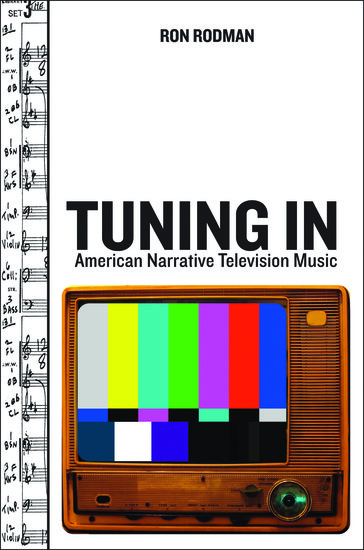Music, Television, and Audiences
Television networks use music to connect audience and program through theme music and short video spots called “promos.” Themes and promos carry what media musicologist Philip Tagg calls “appellative functions”, which summon viewers to the television screen. With an event as big as the Olympics, television networks need to attract as large an audience as possible to maximize commercial ad revenue. The Olympics are a big event, and networks want to make them a big media event, so they use “big” music in their themes and promos. Networks also use music to convey ideologies that match the beliefs and attitudes of the audience.
Music on BBC and NBC
For the 2012 Olympiad, both BBC (in the UK) and NBC (in the US) use “big” music for their openings and promotional spots. The BBC commissioned the pop-rock group Elbow to compose Olympic music. Elbow’s account of the creative process can be found on Pinterest. Their piece, “First Steps,” was recorded by the BBC Philharmonic and was subsequently edited to fit the opening of the broadcast as well as the various promotional spots. “First Steps” opens with a five-note horn call, which Elbow musicians Craig Potter and Guy Garvey say represents the five rings of the Olympic flag. The piece then breaks into a repetitious rhythmic pattern, perhaps signifying motion or action. Then, a long legato theme is played by the strings. Potter and Garvey report that this theme was meant as a “sympathetic” melody with a “twinge of sadness” — a sort of “loser’s theme” — to represent the majority of athletes who don’t win a medal at the games. The piece climaxes with this “losers” theme combined with the opening fanfare.
Rather than commissioning a new piece, NBC is relying on old “standby” pieces in its Olympic broadcasts. NBC has stuck with Leo Arnaud’s “Bugler’s Dream,” a piece so associated with the Olympics that now it is called the “Olympic Theme.” Arnaud, a French émigré to the US, was commissioned to compose the piece for an LP by Felix Slatkin in 1958. “Bugler’s Dream” was adopted by the ABC network for its coverage of the 1968 winter games, and then used for its weekly “Wide World of Sports” show. NBC obtained rights to the piece for coverage for the Barcelona games in 1992.
NBC also continues to use the “Olympic Fanfare and Theme” by film composer John Williams, commissioned for the 1984 games in Los Angeles. Williams’ “Olympic Fanfare and Theme” begins with a chattering fanfare played by brass, followed by a militaristic drum cadence that pervades the remainder of the piece. After that, strings, winds, and horns play a smooth, lyrical melody. The piece ends with another flourish in the brass, similar to the opening fanfare.
Williams did not provide a “program” for his piece as Elbow does (at least I couldn’t find one), but it seems to represent the grandeur of the games, as well as a confident ethos, as in a victory parade. The tone is as if Roman legions (or perhaps Greek phalanx) are marching home in victory. NBC often conflates, or “mashes up”, Arnaud’s and Williams’ pieces together into one big Olympic promo.
The Formula for a Great Olympic Theme
A comparison between “First Steps” and “Olympic Fanfare and Theme,” reveals that the two pieces have a similar structure, shown as follows:
“First Steps”:
- Brass Fanfare
- Rhythmic Cadence
- “Love/Loser’s Theme”
- Climax (“Love” theme and fanfare combined)
- Ending chords
“Olympic Fanfare and Theme”:
- Brass Fanfare
- Rhythmic Cadence
- Lyrical Theme and Fanfare combined
- Closing Flourish
Do we see a pattern here? It seems that there may be a formula for composing a great Olympic theme song for television!
Another Similarity
Another spot aired by NBC this summer opens with a dramatic wordless chorus (another feature also used in the full version of Elbow’s “First Steps”), but segues abruptly into a brass flourish similar to Williams’ finale.
Olympic Music and National Ideology
While similar, the Olympic music used by the BBC and NBC subtly reveals differences in national ideology. Williams’ confident and strident music for NBC conveys the American confidence (or even expectations) of striving for perfection and winning. The BBC music seems to convey the joy of participation and competition as the essence of the games. Elbow’s piece caters more to the majority of the athletes and countries who are likely to win few or no medals. Though both pieces are big and effective, the NBC piece caters to an American ethos, while (as in the opening ceremonies) the British seem to want to convey that the UK is hosting these games, but they are really for everybody.




Well, how about we call it an “NBC ethos” and then, maybe, we’ll admit they’re ours. It has always seemed over the top and jingoistic.
Elbow’s piece uses gospel music quite prominently, which continues the tradition of British musicians relying on American musical traditions rather than creating their own, new innovations.
[…] do Americans versus Brits approach the Games with music Music and the Olympics: A Tale of Two Networks by Ron […]